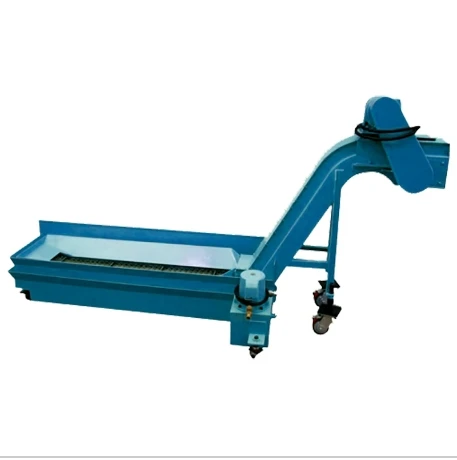Functionality and Benefits of Chip Conveyor Systems in Manufacturing Processes
Chip Conveyor Enhancing Manufacturing Efficiency
In the realm of modern manufacturing, efficiency and productivity are paramount. Among the many innovations that have revolutionized production processes, the chip conveyor stands out as a critical piece of equipment for industries such as metalworking, woodworking, and plastic processing. This article delves into the significance of chip conveyors, their operational mechanics, and their benefits to manufacturing environments.
A chip conveyor is designed to remove and transport metal shavings, wood chips, plastic particles, and other waste materials generated during machining or processing. As machining operations produce a variety of by-products, including chips, dust, and other debris, the need for a reliable waste management system becomes evident. Chip conveyors play an essential role in maintaining a clean working environment, which is vital for enhancing both safety and productivity.
The fundamental mechanics of a chip conveyor involve a simple yet effective design. Typically, they consist of a series of belts, chains, or rollers that facilitate the continuous movement of waste materials from one location to another. Various types of chip conveyors exist, including belt conveyors, screw conveyors, and magnetic conveyors, each suited to different applications and materials. For example, a belt conveyor may be ideal for transporting lightweight materials, while a screw conveyor is more effective for handling heavier, denser waste.
One of the most notable advantages of chip conveyors is their ability to streamline the production process. By automating the removal of waste, manufacturers can reduce downtime associated with manual cleanup efforts. This automation allows workers to focus on value-added tasks instead of labor-intensive waste management. Moreover, a well-designed chip conveyor system can improve the flow of materials throughout the facility, ensuring that machines operate continuously without interruption.
chip conveyor

Additionally, chip conveyors contribute to cost-effectiveness in manufacturing. By efficiently managing waste, companies can reduce disposal costs and enhance recycling efforts. Many chip conveyors come equipped with features that allow for the segregation of different materials, enabling manufacturers to recycle metal shavings or wood chips instead of sending them to a landfill. This not only supports sustainability efforts but also provides potential revenue streams from the sale of recycled materials.
Another critical benefit of implementing chip conveyors is the improvement in workplace safety. Accumulated chips and debris can create hazardous conditions, leading to slips, trips, and falls. By systematically removing waste from work areas, chip conveyors help maintain a clean and safe environment for employees. This is especially important in industries where heavy machinery is in use, as a clean workspace minimizes the risk of accidents and enhances overall operational safety.
Moreover, the integration of chip conveyor systems into existing manufacturing setups can be tailored to fit specific needs. From custom sizing and modular designs to advanced automation features, manufacturers can select configurations that align with their unique production processes. This flexibility ensures optimal performance and adaptability within diverse operational environments.
In conclusion, chip conveyors symbolize a fundamental advancement in manufacturing technology. By enhancing efficiency, reducing costs, and promoting workplace safety, these systems play a vital role in the modern industrial landscape. As manufacturing continues to evolve, the importance of effective waste management solutions like chip conveyors will only grow, cementing their place as essential tools for any forward-thinking production facility. Adopting chip conveyor systems is not merely a choice but a strategic decision that empowers manufacturers to achieve greater operational excellence.








